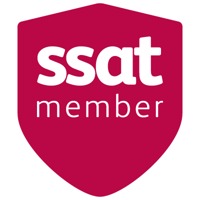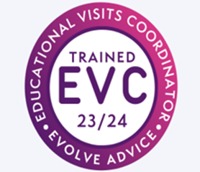SEND Review: Green Paper 2022
SEND review: right support, right place, right time
The government is proposing new national standards for SEND provision, digital EHC plans, and multi-year budgets for alternative providers.
Please see below for an outline of the proposals and/or follow the link to the whole document:
https://www.gov.uk/government/consultations/send-review-right-support-right-place-right-time
New national standards for SEND provision
The government is proposing new national standards for SEND to make provision more consistent across the country. These standards would span from the early years through to further education, and apply across education, health and care.
The standards would:
- Set out a consistent approach to identifying and assessing pupil needs
- Set out what support is available for different pupil needs, and what type of setting (mainstream or specialist) should meet these needs
- Clarify when pupils need an education and health care (EHC) plan
- Clarify the role of different education and service providers (e.g. health and social care) in EHC needs assessments
- Clarify who should fund different forms of support
- Standardise processes for accessing SEND support and reviewing EHC plans (see more below)
- Set out how settings should collaborate with pupils, parents and carers so they can be more involved in decision making
- Set out consistent transition arrangements for pupils to move between schools, phases and into adult life
See page 28 for more details.
Once the standards have been established, the government plans to review and update the SEND Code of Practice to reflect the changes.
Local SEND partnerships
The government wants to create local SEND partnerships that would apply the new national standards (see above) in a way that takes into account local factors, like geographical context and the needs of local communities.
The partnerships would bring together:
- Local authorities (LAs)
- Education providers (including schools, alternative and specialist provision, multi-academy trusts and early years settings)
- Health and care providers
- Other partners (e.g. youth justice)
Local inclusion plans
The partnerships would work with parents and carers to assess existing local provision and pupil needs and, based on these, produce a strategic 'local inclusion plan'. These plans would:
- Set out how the local area (including education providers) will meet the national SEND standards
- Inform the local offer and explain what provision and services will be available
- Take into consideration local factors, like transport arrangements, when setting out the local provision
See pages 29 to 30 for more details.
EHC plans: a standard digital format, and a 'tailored list of settings' for parents
The government is proposing a standardised, digital EHC plan template to:
- Help create consistency for pupils across the country
- Reduce bureaucracy for schools who receive pupils from multiple LAs
- Improve data collection
- Make plans easier for relevant people to access
- Provide a more holistic picture of the pupil (by e.g. including photos and videos)
Annual review process to also be standardised, including:
- Standards on documenting and celebrating pupil progress
- A requirement to discuss whether the pupil should receive targeted support instead of an EHC plan
- Changing the timescale for LAs to issue draft plans following annual reviews (from the current 4 weeks) - the DfE doesn't say what time frame it proposes, but will consult on this 'shortly'
For more details, see pages 31 to 33.
EHC plans: parents to get 'tailored list of settings' to help them decide on their child's provision
To support parents and carers to 'express an informed preference of a suitable placement' for their child, they'll get a 'tailored list of settings' that are deemed appropriate for the pupil's needs. The list would be based on the local inclusion plan (read more in the 'local SEND partnerships' section above) and would include mainstream, specialist and independent settings.
As before, the setting named on a pupil's plan has a legal duty to admit them.
LAs to get powers to direct admission to academies
For cases where academies refuse to admit pupils that have their school named on their EHC plan, LAs are to be given a ‘backstop’ power to direct academies to admit pupils. Currently, LAs have this power when it comes to maintained schools, but for academies, the power lies with the secretary of state.
For more details, see page 34.
EHC plan disputes: mandatory mediation to be introduced
The government is proposing for families and LAs to go through a mandatory mediation process to resolve disputes over EHC plans before going to tribunal. Parents would only be able to appeal to the tribunal if the mediation has not resolved the dispute. Currently, families do not have to go through mediation.
If introduced, the government proposes to keep mandatory mediation under review. If the measure isn't effective, it'll consider introducing an 'independent review mechanism', where a panel would be responsible for reviewing dispute cases eligible for tribunal.
Read more on page 35.
Staff training to identify SEND earlier and improve SENCO skills
Early years staff to be upskilled
The government is to provide training for 5,000 SENCOs in early years settings to help them more accurately identify where a child might have SEND.
This is part of a push to identify SEND earlier - the government plans to integrate assessment for SEND into the Early Years Foundation Stage progress check for 2-year-olds, and the Healthy Child Programme development review.
The government will also review the level 3 early years educator qualification and increase the number of SEND-qualified level 3 practitioners in early years settings.
For more details, see page 39.
A new National Professional Qualification (NPQ) to replace NASENCos
The new NPQ would:
- Focus on improving SENCOs' leadership skills
- Replace the NASENCo - all SENCOs who haven't previously completed the NASENCo would need to complete the NPQ
The government proposes to tighten the time frame within which SENCOs must complete the qualification - in addition to the 3-year window for new SENCOs to achieve their NPQ, they'll need to be in the process of gaining the qualification when they start the job.
See page 44 for more details.
Alternative provision (AP) to become an integral part of local SEND systems
Under government proposals, the new local SEND partnerships (read more about these above) would be required to plan and deliver an AP service focusing on:
- Early intervention (rather than relying on long-term placements)
- Supporting pupils to stay in, or return to, mainstream school whenever appropriate
To do this, AP schools would offer interventions and education based on a 3-tier system:
- Targeted support in mainstream schools - including 'on call' advice, coaching, delivering self-regulation classes for small groups, or 1-to-1 support
- Time-limited placements in AP for pupils who need more support
- Transitional placements for pupils who will not return to their previous school, but need support for their transition to a new school or post-16 setting
For more details, see page 59 to 60.
To support delivery, the government will fund a £70-million SEND and AP change programme to test and refine its proposals and support local SEND systems.
Multi-year budgets for AP and a framework to monitor pupil movements
AP funding system to shift from per-pupil funding to multi-year budgets
Each local SEND partnership would agree on a budget (ideally covering at least 3 years) for their AP service and outline the interventions that AP schools in their area would offer. LAs would distribute this funding to schools.
The government hopes that having stable funding will give AP schools more security. It plans to consult on this proposal as part of wider funding consultations (see more about funding reforms below).
In addition, the government says it'll invest £2.6 billion, over the next 3 years, to deliver new places and improve existing provision for pupils with SEND or who need AP.
For more details, see page 61.
Statutory framework for pupil movements to be introduced
To make sure pupils move into and out of AP in line with their own interests (rather than that of the school), the government is proposing to:
- Review how pupils move around the school system (including off-site direction and unregulated managed moves)
- Introduce a statutory framework for all pupil movements
The government plans to also issue a call for evidence on the use of unregistered AP before summer 2022 on:
- How unregistered provision should operate
- Whether such settings should be limited to part-time provision only as a re-engagement tool that complements education in registered schools
Funding reforms
Standardised national framework of 'banding' and 'price tariffs' for high-needs funding
These would match the needs and types of education provision set out in the national SEND standards:
- Bandings would cluster specific types of provision and be aligned to need
- Tariffs would set rules and prices on different types of provision to:
- Control the high cost of provision
- Clarify to providers how much they can expect to be paid for their specialist support or services
- Enable those commissioning the support or services to get an idea of how much they'll need to pay
The government expects this new framework to be complex to develop, so it'll propose pilot approaches before rolling it out nationally.
See page 73 for more details. Read more about how maintained schools, academies and special schools are funded.
DfE to enter into new funding agreements with LAs
These agreements would stipulate how high-needs budgets are spent to ensure value for money and that the new national SEND standards are met. The DfE would intervene (e.g. through an improvement plan) if it finds that LAs aren't meeting the conditions of these agreements.
Greater accountability in an academy-based system
All special schools and APs to join an academy trust
In the schools white paper, the DfE set out its vision for all schools (including special schools and AP) to be part of, or in the process of joining, a trust by 2030.
AP schools will be able to choose whether to join a trust of specialist schools, or a 'mixed' trust that provides mainstream and special provision.
For more details, see page 49.
New 'regions group' to oversee trusts and LAs
The group, set up by summer 2022, will:
- Bring together functions currently held by the DfE and the Education and Skills Funding Agency (ESFA)
- Act as a risk-based regulator for trusts and have oversight of LAs - this includes bringing together existing requirements into a set of statutory academy standards
- Hold LAs and trusts to account for delivering the new national SEND standards (read more about these above). The group will have power to intervene if trusts don't achieve expected standards
For more details, see page 68.
New 'national SEND delivery board' to oversee changes to the system
Following the consultation on this green paper, the government plans to publish a delivery plan setting out its response and how it'll implement changes to the SEND system. To oversee this, it's proposing to create a 'national SEND delivery board' that would bring together:
- Government departments
- Parents
- Representatives of local government, education, health and care
Tools to monitor performance of SEND and AP provision
New local and national 'inclusion dashboards' for SEND provision
The dashboard would capture the following metrics:
- Outcomes and experiences (e.g. attainment and absence rates, tribunal appeal rates, proportion of pupils with SEN excluded from school)
- Identification of need (e.g. proportions of children with different types of needs, percentage of pupils with EHC plans, timelines of EHC plan assessments)
- Value for money (e.g. schools' high-needs spending, high-needs budget surpluses or deficits)
The government would use these metrics to monitor progress over time and help it get a full picture of how local areas are performing.
See page 69 for more details.
School performance tables to be updated with 'contextual' data
The DfE is to update its Compare School and College Performance service to include contextual data in addition to results data. It hopes this will make it easier to recognise what schools are doing to include pupils with SEND.
See page 71 for more details.
New national performance tables for AP
This framework would assess the success of AP settings and be based on 5 'key outcomes':
- Effective outreach support
- Improved attendance
- Reintegration into mainstream settings
- Academic attainment, with a focus on English and maths
- Successful post-16 transitions
See page 63 for more details.






